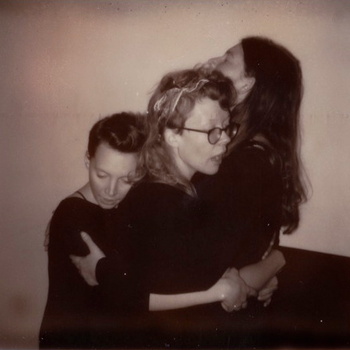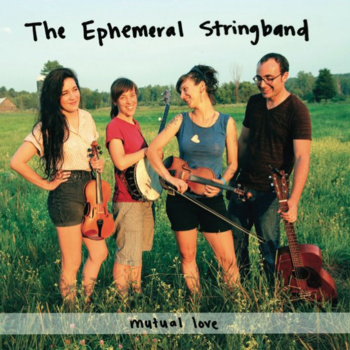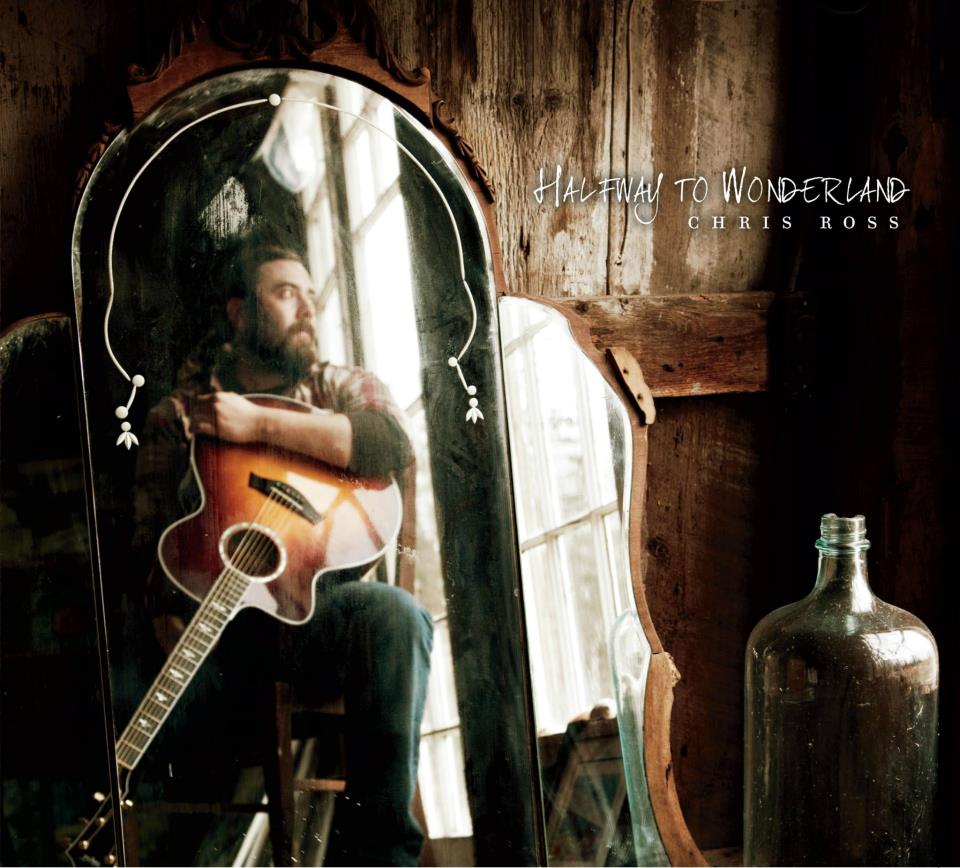New Artists, Old Songs: from indiefolk to bluegrass
with Stampede Road, Mountain Man, AJ Lee, Brandi Ediss & more!
I’ve been too deep in the songs up in my head these past weeks, trying to call up old fragments and refrains in memory while sitting in silence marred only by the whirring pellet stove and the faint and constant ring of tinnitus. But this is a practice that is wholly the wrong way ’round: music is meant to be heard and sung, not merely echoed in the brain; we are shamed at the realization, and determined to make amends.
And so we pursue a corrective action: a dig into the mailbag, the artist blogs and facebook pages, and the various components of the digital rumor mill to celebrate the emergent coverfolk of folk, roots, and Americana artists both known and new with a New Artists, Old Songs feature today, and the promise of news to come of recordings and releases from other, more familiar voices as winter marches ever onward.
Read on for covers of Dylan, the Dead, Low Anthem, John Denver, Blondie, Traffic, tradfolk and more from new artists Stampede Road, Mountain Man, The Tuttles with AJ Lee, Brandi Ediss, and Holy Moly and the Crackers. May your ears, too, take pleasure in the new sounds, even as we cherish those in our hearts and heads.
 All I know about Edinburgh-based folk band Stampede Road is what they sent me, which wasn’t much: a pair of streaming split singles on Bandcamp, and nary a website to be found. But the lo-fi session cover of The Low Anthem’s OMGCD that accompanied the missive from this newly formed quartet led by singer songwriter Graeme Duncan is beautifully raw, intimate, timeless and weary. And following the threads to more produced tracks White Rooms, Night Terrors, and brand new 2014 single Old Town, recently featured on Largehearted Boy and Captains Dead, reveals a shimmery overlay of reverb and harmony that adds richness and flavor in the studio, making for a dreamy, delicate Appalachian-flavored folkpop with just enough originality and quirkiness to suit the indie ear.
All I know about Edinburgh-based folk band Stampede Road is what they sent me, which wasn’t much: a pair of streaming split singles on Bandcamp, and nary a website to be found. But the lo-fi session cover of The Low Anthem’s OMGCD that accompanied the missive from this newly formed quartet led by singer songwriter Graeme Duncan is beautifully raw, intimate, timeless and weary. And following the threads to more produced tracks White Rooms, Night Terrors, and brand new 2014 single Old Town, recently featured on Largehearted Boy and Captains Dead, reveals a shimmery overlay of reverb and harmony that adds richness and flavor in the studio, making for a dreamy, delicate Appalachian-flavored folkpop with just enough originality and quirkiness to suit the indie ear.
 Fans of First Aid Kit and labelmates Deer Tick and Dolorean will love this recent John Denver cover from all-girl indie group Mountain Man, with its layered voices and gentle, melodic acoustic guitar. All of us love that Mountain Man, a trio of young twenty-something singer-songwriters who met at Bennington College, and were essentially dormant in the last few years after touring around 2010 debut Made the Harbour, appear to be back on the radar for more precious, precocious quietfolk in the months and years to come, both as a band, and with solo and side projects from members Molly Erin Sarle, Alexandra Sauser-Monnig, and Amelia Randall Meath, who continue to share news of recordings and shows with Hiss Golden Messenger, Megafaun, Feist, and other well known names from the indie community on the Mountain Man Facebook page. Here’s hoping for more as the year goes on.
Fans of First Aid Kit and labelmates Deer Tick and Dolorean will love this recent John Denver cover from all-girl indie group Mountain Man, with its layered voices and gentle, melodic acoustic guitar. All of us love that Mountain Man, a trio of young twenty-something singer-songwriters who met at Bennington College, and were essentially dormant in the last few years after touring around 2010 debut Made the Harbour, appear to be back on the radar for more precious, precocious quietfolk in the months and years to come, both as a band, and with solo and side projects from members Molly Erin Sarle, Alexandra Sauser-Monnig, and Amelia Randall Meath, who continue to share news of recordings and shows with Hiss Golden Messenger, Megafaun, Feist, and other well known names from the indie community on the Mountain Man Facebook page. Here’s hoping for more as the year goes on.
Skafolk isn’t a thing, but if it were, first in line for kudos and Grammy nominations this season would surely be Newcastle based band Holy Moly and the Crackers, who add celtic fiddle flavor and a Jamaican beat for a brooding cover of tradtune Ain’t No Grave to close out their upcoming three-track EP Lilly, a “re-imagining” of three traditional folk/blues songs that evokes eras of whiskey and guns on modern punk folk steroids. The band, who play “a lively, moonshine mix of Romani, Americana and contemporary British ‘folk’n’roll’”, claim broad influence from the likes of Woody Guthrie, Gogol Bordello, and Laura Marling; others hear The Pogues, Billy Bragg, and The Waterboys, too, and you can hear it all here, in some great live covers and originals on YouTube, and in full album First Avenue, which can be purchased directly from the band on their website.
- Holy Moly and the Crackers: Mississippi Moonlight (orig. Buffalo Skinners)
- Holy Moly and the Crackers: Ramblin’ Gamblin’ Willie (orig. Bob Dylan/trad.)
- Holy Moly and the Crackers: Cocaine (trad.)
This year’s Joe Val Bluegrass Festival is just around the corner, putting us in mind of mandolins and stand up bass, and creating a context which leaves us especially happy to have found The Tuttles with AJ Lee; we’ve a long history of championing young tradfolk and bluegrass artists here at Cover Lay Down, and these kids have been wowing the bluegrass circuit and beyond, garnering ovations and awards since their formation in 2008. Both band and co-lead vocalist Lee are up for “Best of” awards at the Northern California Bluegrass Awards tonight, where bandfather Jack Tuttle, who teaches bluegrass and old-time instruments of all types, will be honored with a lifetime achievement award in recognition of his well-respected work, including his guidance and leadership of this current lineup. But the kids are the true driving force here: stunning singer-songwriter and picker Molly Tuttle, whose trio will appear on the Joe Val sidestage, is finishing up her last semester at Berklee this year; younger brothers Sullivan and Michael demonstrate chops and agility beyond their years; sweet yet hearty-voiced mandolin player AJ Lee, who is still finishing high school and trends towards Grateful Dead covers on tour, has been aptly compared to Alison Krauss or Sarah Jarosz, both of whom, we should remember, got their start as early. Listen, and we think you’ll hear the magic, too.
- The Tuttles with AJ Lee: Ripple (orig. Grateful Dead)
- The Tuttles with AJ Lee: Sugar Moon (orig. Bob Willis)
- AJ Lee: Tomorrow Is A Long Time (orig. Bob Dylan)
Finally, thanks to the ever-discerning Mary Lou Lord, who has a knack for finding and touting the best new voices, for passing along coverage from Brandi Ediss, an alto on the knife-edge of alternative pop and singer-songwriter folk who sweetly interprets beloved songs into a mellow-tinged wash of sound and riotous video effects on a weekly basis. The finished results, produced at home with digital tools or in collaboration with facebook friends from afar, sound like a band and a half, with a warm, decidedly retro california tone and luscious, sighing vocal layers sure to delight; download a bunch over at Bandcamp, and subscribe to her YouTube page for more originals and coverage in the same sweet vein.
- Brandi Ediss: Love Is Making Its Way Back Home (orig. Josh Ritter)
- Brandi Ediss: Dear Mr. Fantasy (orig. Traffic)
- Brandi Ediss: Kodachrome (orig. Paul Simon)
- Brandi Ediss: Call Me (orig. Blondie)
- Brandi Ediss: I Wish I Was The Moon (orig. Neko Case)
Looking for more streaming coverfolk throughout the week? Join the Cover Lay Down facebook page, where we’ve recently posted new coverage from YouTube stars Kina Grannis, Daniela Andrade, and Kiersten Holine!



 As noted earlier today on
As noted earlier today on  This one probably should have made our favorites, too, if it hadn’t gotten lost. But oh, what a discovery: a gorgeous living room cover of Noah Gundersen’s Dying Now from North Country singer-songwriter
This one probably should have made our favorites, too, if it hadn’t gotten lost. But oh, what a discovery: a gorgeous living room cover of Noah Gundersen’s Dying Now from North Country singer-songwriter  As a stand-up-double-bass and voice solo artist,
As a stand-up-double-bass and voice solo artist,  I’ve been meaning to write about the “oldtime fiddle tunes and sister harmony singing” of
I’ve been meaning to write about the “oldtime fiddle tunes and sister harmony singing” of  Finally, I’ve had my eye out for Jason Isbell covers these last few months, with the intent of fronting a coverset sometime this year once we hit critical mass; if you know a great cover of/from the alt-country singer-songwriter, we’d love to hear it. In the meantime, I can’t help but share this quartet of Isbell covers from Maine-based singer-songwriter
Finally, I’ve had my eye out for Jason Isbell covers these last few months, with the intent of fronting a coverset sometime this year once we hit critical mass; if you know a great cover of/from the alt-country singer-songwriter, we’d love to hear it. In the meantime, I can’t help but share this quartet of Isbell covers from Maine-based singer-songwriter